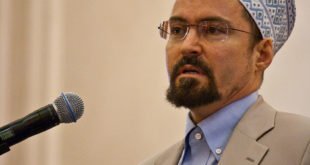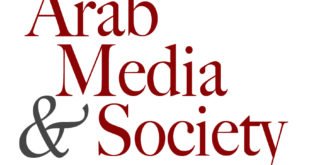Hamza Yusuf Hanson was born in Walla Walla, Washington, and raised in northern California. He became Muslim in 1977 in Santa Barbara, California and subsequently moved to the Middle East and studied Arabic and Islam for four years in the United Arab Emirates and later in Medina, Algeria, Morocco, and …
Read More »Research Articles
US International Broadcasting Strategies in the Arab World: An analysis of the Broadcasting Board of Governors’ strategy from a public communication standpoint
The US government has devised a plan to repair its image in the Arab World. This plan includes generously-funded, government-sponsored international broadcasting, known in the past as Voice of America or Radio Free Europe. Today, under the guidance of the Broadcasting Board of Governors (BBG), two new programs have been …
Read More »Blending in: Arab Television and the Search for Programming Ideas
From the 1890s until the 1950s, the inventors of television thought of it as a means for disseminating information in a fashion similar to print, radio, and film. By the early '60s, media use and consumption emerged as a cultural concern in the debates on the "consumer society." The '70s …
Read More »NourSat, the New Satellite in the East
There's a new satellite beaming towards the Middle East: "NourSat" (meaning "Light" Sat) is part-owned (30 percent) by the giant Mawared Group, the same company that has financed Orbit this past 10 years. NourSat is the name given to a handful of beams on a new Intelsat satellite operating …
Read More »Balancing Act: UAE Satellite TV Channels Between National and Pan-Arab Markets
With a GDP of $81 billion in 2003, up 4.5 percent from the previous year, and an 8.7 percent population growth rate that brought the population to more than four million in 2003, the United Arab Emirates (UAE) have all the economic and business ingredients for the most dynamic Arab …
Read More »Reaching the Arabs through Alhurra: US Chooses Easy Way Out?
After comprehensive investigations by expert panels, US public diplomacy officials have succeeded in figuring out why US public diplomacy targeting the Arab world have failed: it is the Arab media and more specifically the pan-Arab television channels, with Al Jazeera as the main culprit. In his State of the Union …
Read More »U.S.-Funded Sat Channel Al-Hurra Launches to Mixed Reviews
Whether you love or hate the idea of a US-funded, Arabic-language satellite news station broadcasting to the Arab world, Al-Hurra - which launched regionally in mid-February - appears set to stay the course. When asked about what the channel had to prove in order to secure its annual funding from …
Read More »Alhurra—Dialogue with the Deaf
The United States Government's new Arabic-language satellite television channel claims to be bringing something new to the Arab world. The message is impossible to miss, as it is incessantly hyped in the clumsily cued station promos: If you look, you must surely see; a new horizon; a new window on the …
Read More »A New Look to Arab News
There is something very important to be said about competition, especially within the media. With the onslaught of cable and satellite networks in the United States, Americans can easily watch a news story on four or five different channels, to ensure they get a balanced and accurate idea of what …
Read More »Showtime: Profit, At Last
On May 26,2004, Viacom's Sumner Redstone and Faisal al-Ayyar of Kipco (Kuwait Investment Projects Co) will perform a ribbon-cutting ceremony at Showtime's brand-new broadcasting centre at Dubai Media City. The two major shareholders in Showtime have much to celebrate. Showtime is, without doubt, the Middle East's most successful Pay-TV platform. …
Read More » Arab Media & Society The Arab Media Hub
Arab Media & Society The Arab Media Hub


